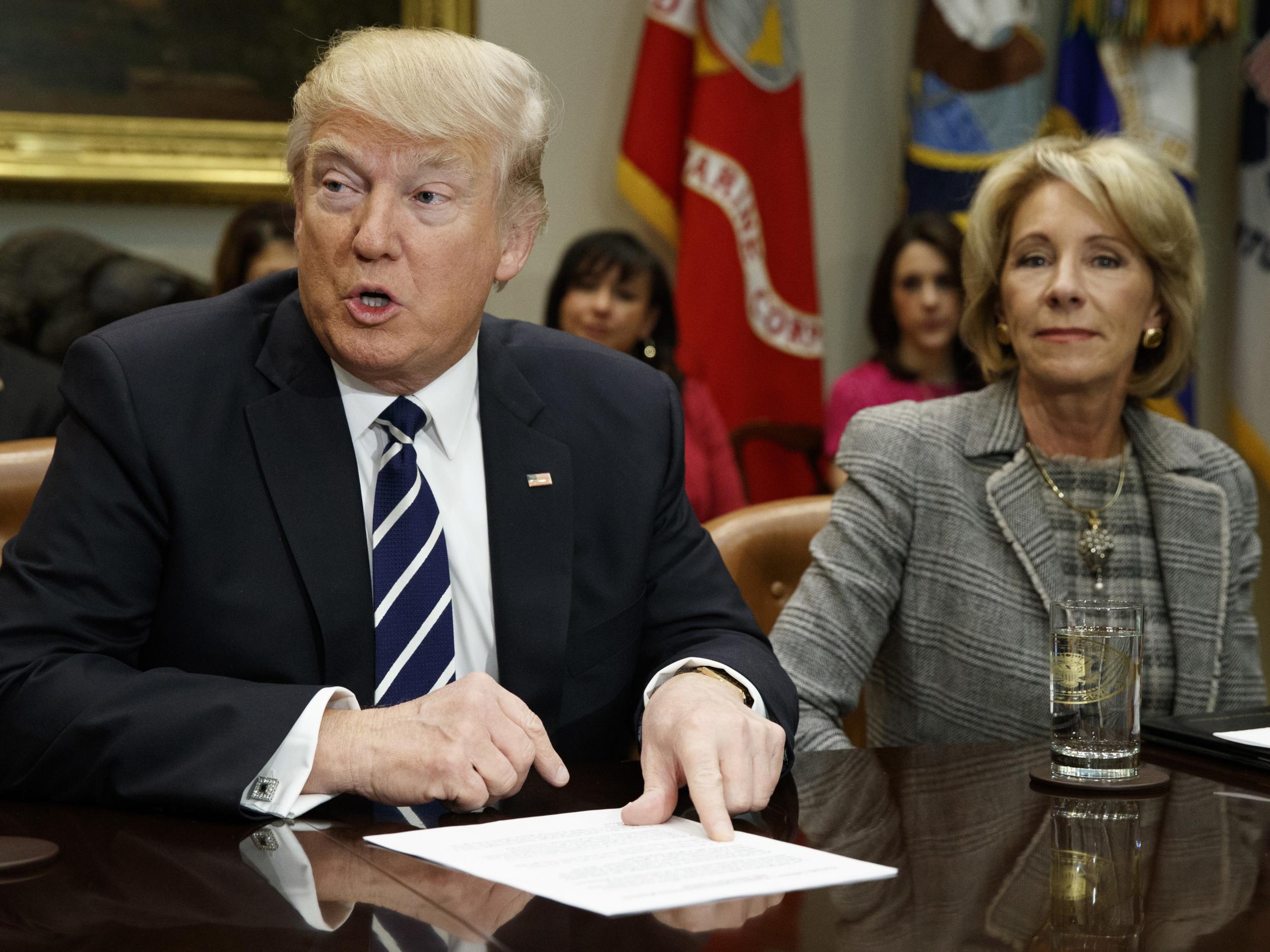Donald Trump raises concern about autism myth used by anti-vaccination campaigners
President has previously indicated he believes vaccines can cause autism
Donald Trump has expressed concern about a “tremendous increase” in autism rates – an argument commonly made by anti-vaccine campaigners, but disputed by autism experts.
At a White House meeting, the President asked the principal of a special education centre in Virginia whether she had seen an increase in autism cases at her school.
“What’s going on with autism? When you look at the tremendous increase, it’s really, it’s such an incredible… it’s a really horrible thing to watch, the tremendous amount of increase.” he said.
Jane Quenneville, the principal, replied that one in 66 children are diagnosed with autism, figures in line with the most recent government report on the matter.
“It’s gotta be even lower than that, which is just amazing,” said Mr Trump, adding: “well, maybe we can do something”.
Mr Trump has previously indicated he believes vaccines can cause autism. He tweeted in 2014: “Healthy young child goes to doctor, gets pumped with massive shot of many vaccines, doesn't feel good and changes - AUTISM. Many such cases!”
However there is exhaustive scientific research that concludes that vaccines such as the MMR – for measles, mumps, and rubella – have no association with autism.
The Centers for Disease Control and Prevention (CDC) reported last March that about one in 68 school-aged children have autism or related disorders — about the same as in 2014.
While the rate does appear to have increased since the year 2000, when CDC figures show around one in 150 children had the disorder, experts say this is to do with better awareness of the disease and changes in the way it is diagnosed.
Science writer Steve Silberman told New York Magazine the President was wrong to emphasise how “tremendous” and “horrible” the rise was.
“Some people claim that there are some environmental factors – notably, not vaccines – that may be contributing to a small increase. But the consensus is that there has been no huge, startling, ‘horrible,’ as Trump said, increase in autism,” he said.
Mr Silberman, whose book about autism Neurotribes won the prestigious Samuel Johnson prize for best nonfiction writing, said studies had shown older parents were more likely to have children with autism.
Social trends of waiting later to have children could therefore have contributed to a slight rise in autism cases, he said, as well as increased public awareness of the condition.
“The CDC estimate has been flat for a couple of years, just as they expected it to be, because the major source of the increase that started in the 1990s was broadened diagnostic criteria and much more public awareness of what autism looks like,” Mr Silberman told the magazine.
Mr Trump was speaking with parents and teachers alongside new education secretary Betsy DeVos.
The MMR vaccine has been available in the US since 1963, and the country believed it had eliminated measles more than a decade ago, meaning any cases in the country were imported from abroad and there was no danger of domestic transmission.
But in 1998 the British doctor Andrew Wakefield published a controversial and since-discredited study in The Lancet, which purported to show a link between the MMR jab and autism in children.
The article was retracted and Dr Wakefield struck off, but it nonetheless gave a boost to the burgeoning anti-vaccination movement.
A measles outbreak at Disneyland two years ago was said to be as a result of children not being properly vaccinated.
Last month, Robert F Kennedy Jr, who has supported the theory that vaccines cause autism, said Mr Trump had planned to appoint him as a chair of a new ‘vaccine safety’ commission.
“President-elect Trump... asked me to chair a commission on vaccine safety and scientific integrity,” he said.

“President-elect Trump has some doubts about the current vaccine policies, and he has questions about it. He says his opinion doesn’t matter, but the science does matter, and we ought to be reading the science, and we ought to be debating the science.
“And that everybody ought to be able to be assured that the vaccines that we have – he’s very pro-vaccine, as am I – but they’re as safe as they possibly can be.”
A survey has suggested that one in three Trump supporters believe vaccines do cause autism.
Join our commenting forum
Join thought-provoking conversations, follow other Independent readers and see their replies
Comments